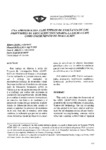Mostrar o rexistro simple do ítem
Una aproximación a los estilos de enseñanza de los profesores de educación secundaria: la escala CAPE como instrumento de evaluación
| dc.contributor.author | Barca-Lozano, Alfonso | |
| dc.contributor.author | Peralbo, Manuel | |
| dc.contributor.author | Brenlla-Blanco, Juan-Carlos | |
| dc.contributor.author | Seijas-Ramos, Sonia | |
| dc.date.accessioned | 2010-01-26T13:33:17Z | |
| dc.date.available | 2010-01-26T13:33:17Z | |
| dc.date.issued | 2006 | |
| dc.identifier.citation | Revista galego-portuguesa de Psicoloxía e Educación, 2006, 13: 353-362 ISSN 1138-1663 | es_ES |
| dc.identifier.issn | 1138-1663 | |
| dc.identifier.uri | http://hdl.handle.net/2183/7052 | |
| dc.description.abstract | [Resumen] Este trabajo se elabora a partir del Proyecto de Investigación Feder (1 FD970283) del Ministerio de Ciencia y Tecnología. Con su realización se pretende conocer, analizar y evaluar los contextos de enseñanza/aprendizaje, de desarrollo y familiares que inciden en el rendimiento del alumnado de Educación Secundaria (ESO) de Galicia y, a su vez en los procesos de estudio y aprendizaje que realiza este alumnado en interacción con el profesorado. En este trabajo se analiza el propio contexto instruccional, en concreto, las técnicas de enseñanza y el proceso de evaluación que desarrolla el profesorado de Educación Secundaria cuando se ponen en práctica los procesos de enseñanza en el aula. Para ello se estudian, entre otras variables, la influencia que poseen las actividades de instrucción del profesor en los resultados de aprendizaje del alumno, intentando identificar cuáles son los estilos de enseñanza que obtienen los mejores resultados y los que, en definitiva, son más eficaces. | |
| dc.description.abstract | [Abstract] This study is set within the framework of the ERDF (lFD97-0283) Research project granted by the Spanish Ministry of Education, Science and Technology. The aim of carrying out this project is to know, analyse and evaluate the development-orientated and familyorientated teaching/leaming contexts which affect the academic achievement of Spanish Compulsory Secondary School (ESO) pupils in Galicia, in north-westem Spain, and likewise to analyse and evaluate the study and learning processes that these pupils, in their tum, perform when they come to interact with the teaching staff. The teaching context itself, more specifically, the teaching techniques and the evaluation process that is developed by the Secondary School teaching staff when putting their teaching processes into practice in classrooms, is taken into account as well. In order to do so, the influence that teachers' teaching activities have on pupils' leaming results are analysed - amongst other variables - while an attempt is also made to identify what sort of teaching styles achieve the best results and which, in short, are the most efficient ones | |
| dc.language.iso | spa | es_ES |
| dc.publisher | Universidade da Coruña | es_ES |
| dc.subject | Estilos instruccionales | es_ES |
| dc.subject | Evaluación | es_ES |
| dc.subject | Rendimiento académico | es_ES |
| dc.subject | Interacción profesor/alumno | es_ES |
| dc.subject | Motivación escolar | es_ES |
| dc.subject | Teaching styles | es_ES |
| dc.subject | Evaluation | es_ES |
| dc.subject | Academic achievement | es_ES |
| dc.subject | Teacher/pupil interaction | es_ES |
| dc.subject | School motivation | es_ES |
| dc.title | Una aproximación a los estilos de enseñanza de los profesores de educación secundaria: la escala CAPE como instrumento de evaluación | es_ES |
| dc.type | info:eu-repo/semantics/article | es_ES |
| dc.rights.access | info:eu-repo/semantics/openAccess |






